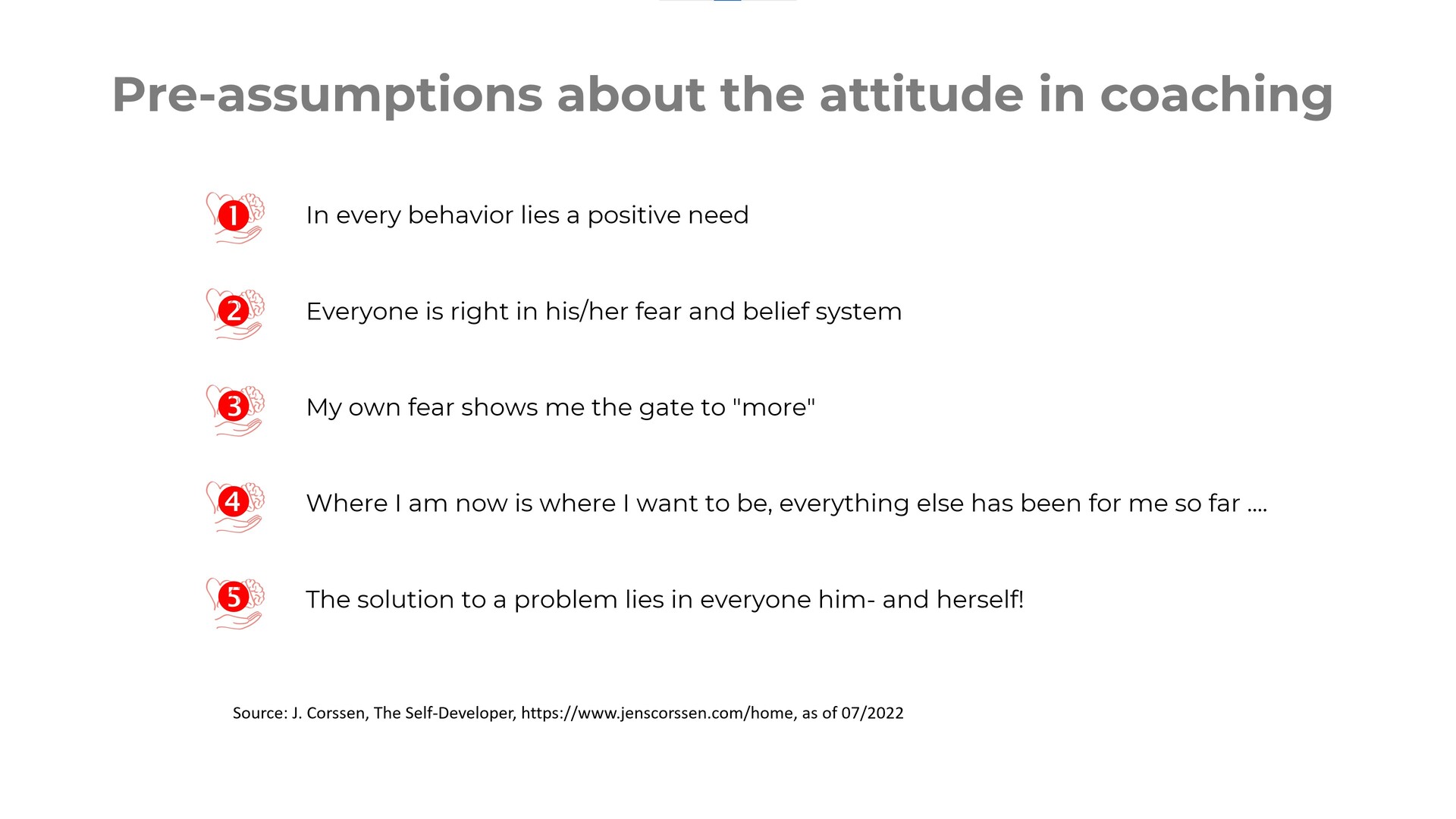Coach attitude
To get started, this topic is about your personal experiences in coaching. Before you continue, answer the following questions:
- Have you ever been coached yourself?
- Have you already coached yourself?
- What aspects of attitude are important for coaches?
- What influence does a coach have on the coachee and the environment?
With the last two questions we can match your experiences and expectations. In the first lesson we had highlighted two aspects of the coaching attitude: 1. the more flexible leads! and 2. he who asks leads! Both aspects emphasize leadership! A coach is a process facilitator and leads his coachees through the coaching process. As a leader, the coach adopts a „servant leadership“ attitude and thus serves the coachee by supporting him or her on the way to finding a self-determined solution.
Challenges for the coach
Another attitude or better pre-assumption for the coach is: „The solutions are in the system and the people themselves!“ This pre-assumption is at the same time a challenge insofar as the coach becomes a part of the system in the interaction with the person or the system itself.
We may be aware that a coach can never influence coaching in a completely neutral way as an outsider. So the behavior of the coach himself is also determined by the environment. As a coach you need a good self-reflection ability so that you can act as a „quasi-neutral observer“.
For your effectiveness as a coach, you should always be aware of these three aspects when coaching:
- We separate the person, who is basically fine, from their behavior
- As a coach we become part of the system of person, behavior and environment through our interaction
- Our own attitude in the sense of a solution found self-determined by the coachee.
Regular self-reflection and if possible supervision with the help of another coach can support you in this process.
Pre-assumptions about the coaching attitude
Jens Corssen, a behavioral psychologist and coach, has formulated further assumptions in his book „The Self-Developer“ (cf. source), which can help you to adopt an attitude towards the coachee and also towards yourself.
Reflection questions
Use the following reflection questions to become clear to yourself about the attitude and the assumptions mentioned.
- Which presupposition creates resistance in yourself?
- How can you deal with this resistance in such a way that the presupposition is helpful for you?
- What coaching causes can you derive for yourself, especially when you think of situations in which such resistance was noticeable in the past?
- Write down your very personal coaching occasions now!
References
J. Corssen und S. Ehrenschwendner, Das Corssen-Prinzip: Die vier Werkzeuge für ein freudvolles Leben – Der Graphic Coach zur Selbstentwickler®-Methode – Mit Illustrationen von Florian Mitgutsch [Buch]. – München : Arkana in der Verlagsgruppe Random House GmbH (eBook), 2016.



